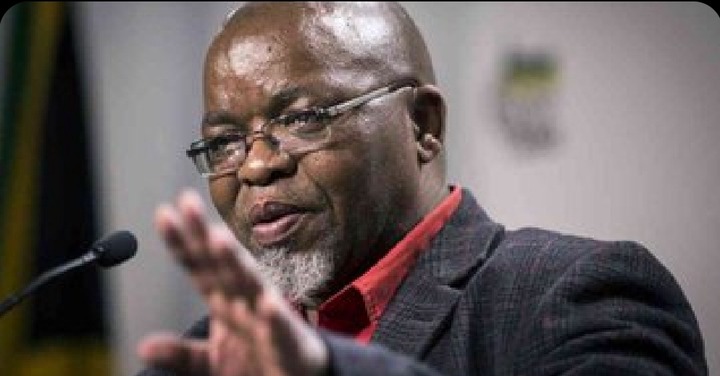South Africa’s Minister of Mineral Resources and Energy, Gwede Mantashe, has hit back at former U.S. President Donald Trump’s threats to cut funding over the country’s land reform policies, suggesting that South Africa could withhold its mineral exports in response.
Speaking at the opening of the African Mining Indaba in Cape Town, Mantashe made it clear that South Africa would not bow to external pressure. “If they cut funding, let us withhold our minerals,” he declared, addressing a room full of industry leaders, investors, and policymakers. His remarks were a direct response to Trump’s recent criticism of South Africa’s plans for land expropriation without compensation, which the former U.S. president framed as a risk to property rights and foreign investment.
Mantashe emphasized the strategic importance of South Africa’s mining sector, highlighting its role in economic growth, job creation, and foreign investment. “Mining is the backbone of our economy. We will not be dictated to by external forces on how we manage our land or our resources,” he stated firmly.
The African Mining Indaba, a leading forum for the global mining industry, provided the platform for Mantashe to assert South Africa’s independence in the face of international scrutiny. “Our resources give us leverage. If any country thinks they can pressure us with funding threats, they should remember that our minerals power industries worldwide,” he warned, drawing applause from the audience.
As one of the world’s top producers of platinum, gold, and manganese, South Africa holds significant influence in global supply chains. Mantashe hinted that any punitive economic measures from foreign governments could trigger broader consequences for industries reliant on South African minerals.
His remarks come at a time of heightened tensions between South Africa and certain Western nations over land reform policies. Trump’s outspoken opposition to expropriation without compensation has been met with criticism from South African leaders, who argue that the reforms are necessary to redress historical injustices.
Political analysts suggest that Mantashe’s strong stance signals a shift in South Africa’s foreign policy, prioritizing self-reliance and regional partnerships over dependency on Western aid. “Mantashe is making it clear that South Africa is not a passive player on the global stage. The country has bargaining power, and it’s ready to use it,” said political analyst Nomsa Dlamini.
As South Africa seeks to attract new investment while asserting its sovereignty, Mantashe’s remarks set the stage for a more assertive stance in international economic relations. The message is clear: South Africa’s mineral wealth is not just an economic asset—it’s a strategic tool in shaping its global position.






















